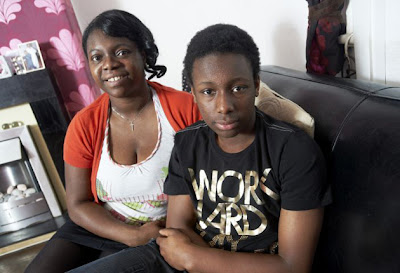Cet article de Guy Adams envoyé depuis Los Angeles pour The Independent, montre à quelles expédients doit se résoudre une organisation qui ne structure pas son fundraising à temps.
Can the cult of Assange save cash-strapped WikiLeaks?
Roll up, roll up! The great WikiLeaks memorabilia auction has just begun. The laptop computer on which "Cablegate" was compiled is on offer for £6,000, while some signed versions of those famous diplomatic cables can be yours for just £2,100. And do I hear £240 for a sachet of prison coffee once purloined by an incarcerated Julian Assange?
With normal sources of revenue stifled by a financial services embargo – and running costs and legal fees mounting – the website's proprietors are doing what comes naturally to cash-strapped citizens of the internet era: selling a selection of prized second-hand possessions on eBay.
The first of four fundraising auctions was announced at the weekend, featuring 10 intriguing lots ranging from a print of the directive in which Hillary Clinton asked US officials to spy on the UN, to a signed photograph of Mr Assange, the WikiLeaks founder.
"In this framed unique photo, Julian Assange leans against a column at the front of Ellingham Hall where he has spent almost 300 days under house arrest," reads the accompanying blurb, which informs bidders that the image was autographed at Mr Assange's 40th birthday party. "It is one of only four photos of Julian in the world that were signed on this occasion," it adds.
That item was going for £640 last night, although bidding will not reach its crucial stages until Thursday. Bigger ticket items include the laptop computer, described as having "led to hundreds of front pages and a causative element in ongoing political turmoil and reforms". It has attracted a bid of £6,000.
Some of the organisation's prominent supporters have also chipped in. Vivienne Westwood is offering two tickets to her Paris fashion show later this month for £8,000. Chef Sarah Saunders will cook dinner at your home for £800. And John Pilger, the filmmaker, has contributed a signed movie poster, currently going for £420.
WikiLeaks, which is funded by donations, said the auction is an effort to replace cash lost during an "unlawful financial embargo" during which the Bank of America, Visa, Mastercard, PayPal and Western Union have refused to process payments to its accounts.
The celebrity sales patter attached to some auction lots may, however, lead critics to complain that the organisation has become unduly interested in promoting its founder. Mr Assange's soaring profile is reported to be a factor in simmering disputes which have recently seen several of his former colleagues resign from WikiLeaks.
Included in the auction, for example, is a coffee sachet purloined by Mr Assange during his stay at Her Majesty's pleasure before Christmas. "This rare item has been signed on one side: 'Julian A, Prison coffee, smuggled out of Wandsworth Prison by me on 17 Dec 2010'," reads the blurb. "On the other side of the sachet Julian has inked a fingerprint. The sachet is unopened."
Mr Assange is currently staying at the 650-acre Ellingham Hall estate, in Norfolk, while he fights extradition to Sweden. He denies charges of sexual misconduct with two women in Stockholm, saying they are part of a wider conspiracy against him.
Whistleblower's wares on offer
Item: CableGate preparation computer
Description 'The database machine allowed the WikiLeaks team to search the full set of cables and extract the cables to be sent encrypted to media organisations throughout the world.'
Item: Julian Assange's prison coffee sachet, signed and fingerprinted
Description 'Scarce item of memorabilia from Julian Assange's time in prison. When he left to go under house arrest in Norfolk, he smuggled out this, one of three sachets of coffee. The sachet is unopened.'
Item: Cable on UN spying, signed and fingerprinted
Description 'The unique cable details Hillary Clinton asking her diplomats to spy on UN officials, requesting them to collect details of UN officers, including Ban Ki-moon's DNA. Julian has also written the WikiLeaks' slogan on the cable: "Courage is Contagious."'
Item: Signed photograph of Julian Assange
Description 'Exclusive photo (13cm x 18cm) of the organisation's founder. It was taken at Ellingham Hall where Julian is under house arrest.'
Poor thanking: [Mr. Yuk Fundraising, part 1]
-
A series about four common fundraising problems that can poison your work
and flatten revenue. I wish I could put a “Mr. Yuk” sticker on those
practices. P...
Il y a 15 heures




